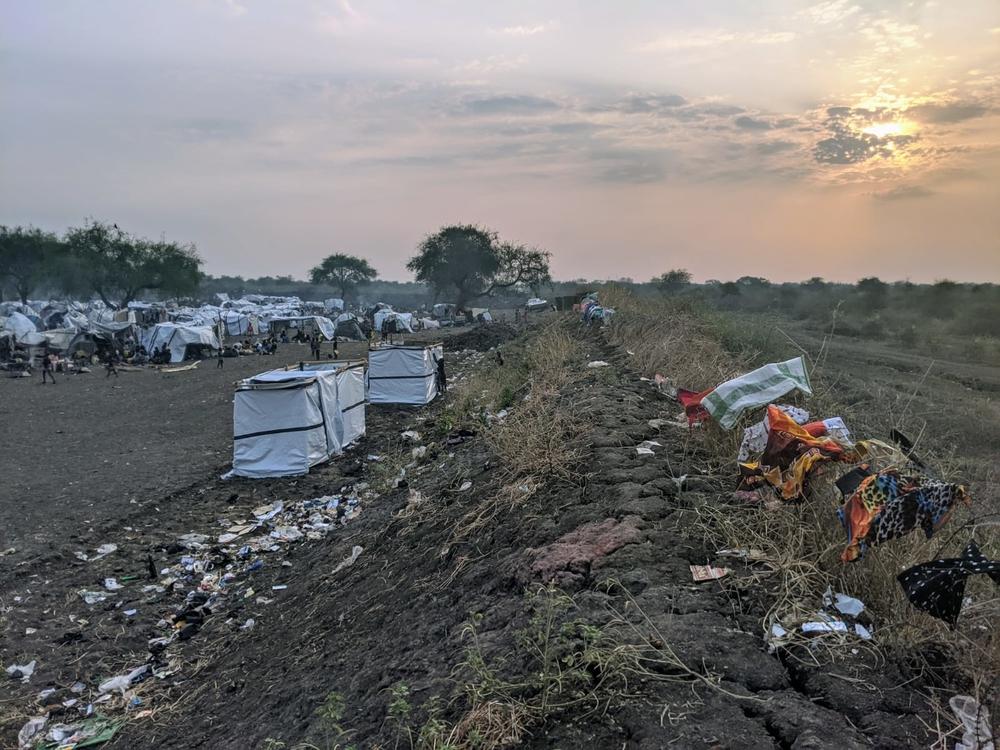Juba, 24 June 2020 – Thousands of people have fled into the bush in the Greater Pibor Administrative area in eastern South Sudan as intense fighting over several days yet again threatens the lives of entire communities, says Médecins Sans Frontières (MSF). The new and brutal rise in intercommunal clashes has led MSF to suspend our medical activities in Pibor after most of our staff sought safety in the remote bush area.
The violence, which appears to be a resurgence of intercommunal tensions, erupted on 15 June around Manyabol, as armed groups moved towards the village of Gumuruk a few days later. It is reported that almost everyone who could leave, fled as the fighting got closer. In Pibor, located several dozens of kilometres from Gumuruk, MSF received three patients with gunshot wounds in our primary healthcare centre.
What I have seen is extremely traumatic; I have seen signs of fear and witnessed extreme feelings of sadness in people’s eyes due to the recurring violence. The fighting has reached Lawo village which is about two hours from Pibor town.
Regina Marko Ngachen, MSF nurse
“The fighters are raiding cattle but also burning houses, destroying property and looting,” says Marko Ngachen. “I have treated patients with bullets still lodged in their bodies but due to fear, they have been forced to flee to the bushes before we could help treat them and we do not now know their whereabouts."
The fighting is now approaching Pibor town, in the east, with almost all residents choosing to seek refuge in the surrounding bush, including MSF staff.
“Our staff fled with their families fearing for their lives and those of their loved ones,” says Ibrahim Muhammad, MSF Head of Mission in South Sudan. “Without staff, we can’t keep running the health facility. We are really concerned because people are left without access to healthcare when they need it most.”
“If the clashes persist, we can expect more wounded. We will soon arrive at the height of the malaria season, and without proper shelter, people will further be exposed to life-threatening diseases,” continues Muhammad. “This further amplifies an already alarming nutritional situation, especially among the children under five. As soon as the situation allows, we are committed to resume our medical activities in the area.”
In 2019, MSF treated over 32,000 patients in the health centre in Pibor, most of them ill from malaria, respiratory infections or diarrhoea. This new upsurge of violence, which has led to the forced displacement of thousands of people, could have a disastrous impact on children’s health as last week’s indicators already showed worrying trends.
Over 70 per cent of the children under five treated in our health centre had malaria, compared to 43 per cent at the same time last year. Recent malnutrition rates, with six per cent of children with severe acute malnutrition among children treated in the health centre, is an indicator of a worrying and looming acute food crisis.
This new wave of strife hampers prompt and safe access for humanitarian organisations to a community recovering from the devastating floods that occurred at the end of 2019. In addition, the COVID-19 pandemic now also threatens a community’s access to an already-fragile health infrastructure, following decades of war. If these factors are not mitigated, they provide a recipe for a dire humanitarian situation.
Since the beginning of the year, MSF has repeatedly alerted the international community on the deteriorating situation in the Greater Pibor Administrative area, after a series of brutal episodes of violence.
This new wave of strife hampers prompt and safe access for humanitarian organizations to a community recovering from the devastating floods that happened at the end of 2019, and now the COVID-19 pandemic additionally threatens a community’s access to, following decades of war, an already fragile health infrastructure, and if unmitigated, these factors frame a recipe for a dire humanitarian situation.
In March, MSF team treated more than 45 gunshot-wounded in Pibor after a new upsurge of intercommunal clashes, and 83 wounded patients were taken care of in Pieri and Lankien over the space of just five days between 9-13 March. Only a month ago, another flareup of violence in Pieri killed over 200 people, including an MSF staff member and left a further 300 people injured.
MSF is deeply troubled that this pattern of violence might once again push this area of eastern South Sudan into an epicenter of extreme violence, as described in a 2012 MSF report with horrors of intercommunal violence.
“As the fighting keeps happening, the population is left each time more vulnerable,” says Muhammad. “Civilians are the ones paying the heaviest price of this cycle of fierce violence, pushed into repeated displacement, losing their homes and livelihoods, when not wounded or killed.”
“Civilians must be protected, and humanitarian organisations need to have an effective access to the area to be able to ensure an adequate level of care and assistance for the affected population and wounded people,” adds Muhammad.
